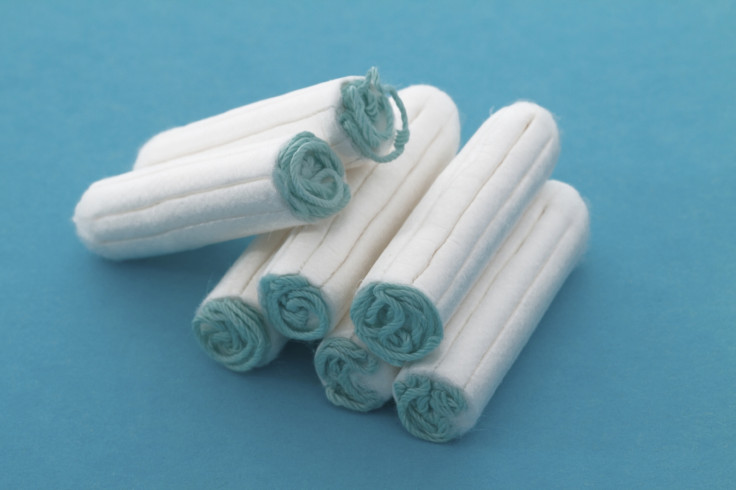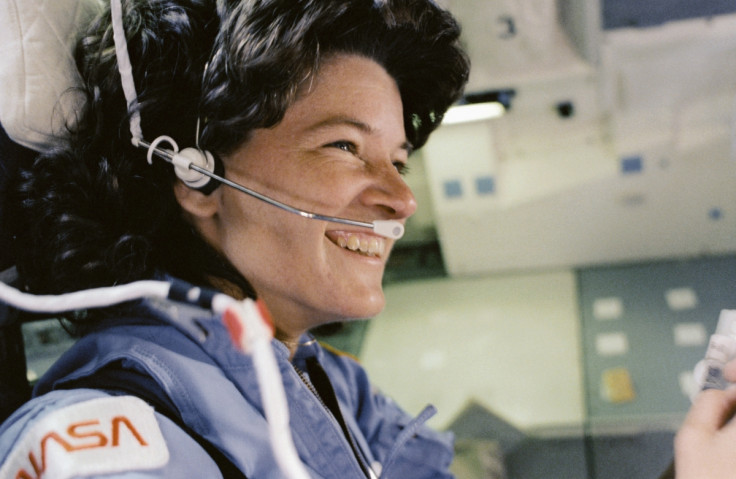Periods in space: What's the best way for astronauts to deal with menstruation?

How do astronauts have periods in space? In the 1960s, a report into how women would cope brought up the issue of menstruation. It effectively said having a hormonal woman in space was not a good idea: "The intricacies of matching a temperamental psychophysiologic human and the complicated machine are many and, obviously, both need to be ready at the same time," the report reads, before concluding: "It seems doubtful that women will be in demand for space roles in the very near future."
Eventually, of course, women were allowed to become astronauts and, so far, our hormones do not appear to have caused any major problems. However, the issue with periods and how to deal with them still remains.
Sally Ride (the first American woman in space) talked about how Nasa reacted to the problem posed by periods for astronauts. In the end, they gave astronauts normal Earth tampons – but this led to yet another question: how many does she need?"[They asked] is 100 the right number? [I said] no. That would not be the right number."

Over 30 years and 59 women later, there has still been very little research into how a space environment affects periods and what the best options are for female astronauts. Part of the reason is to do with the gender imbalance – there have been almost 500 men in space, outnumbering women almost 10 to one. This means there are very few subjects on which to carry out clinical studies.
Researchers from Kings College London have looked at the problem of menstruating in space in a paper published in Nature. They note that on short duration missions, cycles can be timed with mission dates. But on longer spaceflights, astronauts often chose to suppress their periods with contraceptive devices.
With human space exploration poised to move towards missions lasting years, they argue significant research is needed into what options are available to women and a strong understanding of exactly how those options would work in space.
Traditionally, astronauts have used the combined oral contraceptive. Over a three year mission, however, this would mean consuming 1,100 pills, adding mass to the flight and posing a packaging disposal problem. Implants and long-acting reversible contraceptives have not generally been used. These options would remove the problems presented by the combined pill, but they could rub or catch on equipment and specialist clothes like spacesuits.

"The implant does not usually interfere with normal clothing worn by terrestrial users, and most comment they are unaware of its positioning after the initial insertion," they wrote. "We suspect subdermal implant positioning would be non-problematic for female astronauts; however, this has not been trialled."
Another possible issue is the effect of hormone treatments on bone mineral density. Astronauts lose bone density at a far higher rate than on Earth. Previous research has shown some contraceptives (the progestin only injection) can lead to a reduction in bone density. In a long-duration spaceflight, this could cause a problem.
The authors say astronauts should be given evidence-based information, to make an educated decision about their periods in space. Virginia Wotring, one of the authors on the paper, said: "For any woman, choice of a contraceptive requires careful consideration of benefits and risks with respect to her lifestyle and needs. The spaceflight environment adds some extra complexity to the overall equation, and we want female crewmembers to be able to make well-informed choices for their missions.
"Because loss of bone mineral density is known to occur on spaceflight missions, we need more data regarding health effects, including bone health, with long-term use of hormone treatments not just for contraception (as most women use them), but also for the less-common use to suppress [periods]."
Varsha Jain, another author, added: "With more women going into space, we need to ensure they also have the most up-to-date information on reliable contraception and means of menstrual suppression. It is ultimately the woman's choice to suppress, but options should be available to her should she decide to do so."
More from IBTimes UK
© Copyright IBTimes 2025. All rights reserved.






















